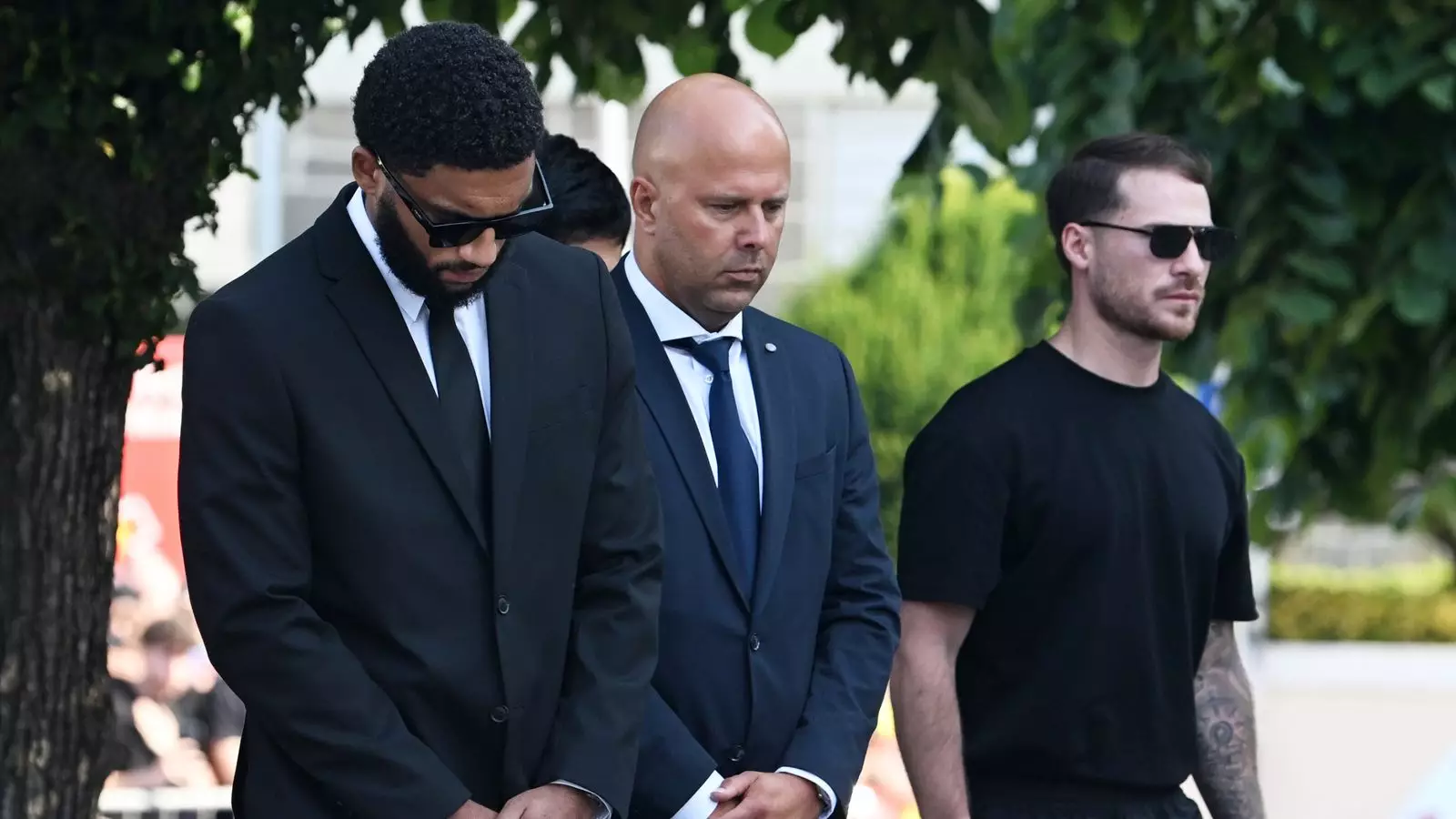In a heartbreaking event that transcends the pitch, the football world was forced to confront its vulnerability and the profound human cost of tragedy. The recent funeral of Diogo Jota and his brother Andre Silva in their hometown of Gondomar, Portugal, vividly revealed how sports communities rally together in times of devastating loss. It was not just a moment of mourning for two talented footballers but a stark reminder of life’s fragility, regardless of fame, skill, or achievement. The solemn gathering underscored the importance of solidarity, showing that, despite the competitive nature of sports, beneath the jerseys beats a collective, empathetic heart.
This tragic incident—caused by a fiery crash following a suspected tire blowout—highlighted the unpredictability of life, serving as a sobering reflection on what it means to be human amidst relentless societal pressures. Jota, whose evolution from local prodigy to Liverpool star, leaves behind a young wife and three children who now face the unthinkable. His brother, Andre, also had a promising career in Portuguese football, a testament to the deep roots of their familial bond. Their deaths prompted an outpouring of grief from across football’s global community, revealing a collective fragility that often goes unspoken behind the glitz and glamour.
More Than Players: The Enduring Bonds of Friendship
What stands out most about the funeral service is the palpable sense of fraternity and genuine kinship shared among football professionals. From Liverpool’s iconic captain Virgil Van Dijk to former teammates like Jordan Henderson, their presence conveyed a unity that transcends club rivalries and national allegiances. Van Dijk, carrying a wreath bearing Jota’s number, exemplified how personal connections deepen amidst professional lives structured around performance and results. The attendance of international stars like Bruno Fernandes, Ruben Dias, Bernardo Silva, and others made it clear that Jota’s influence extended well beyond club borders, emphasizing the sport’s global reach.
The heartfelt messages shared on social media cheered the memory of Jota as more than just a talented athlete; they depicted him as a beacon of positivity, camaraderie, and resilience. Alexis Mac Allister’s tribute, describing Jota as someone whose smile and spirit left an indelible mark, exemplifies how athletes often serve as sources of inspiration amid the pressures of demands and expectations. Their collective grief acts as a testament to the genuine relationships that flourish beyond contractual obligations.
Reflecting on the Vulnerability of Life and Sport’s Collective Responsibility
The tragedy’s aftermath raises uncomfortable questions about safety, mortality, and the emotional toll that the sporting world can take. While professional athletes seem invincible on the field, the reality outside is a fragile human experience marked by sudden loss. The community’s response—flags lowered, clubs closing, flowers laid outside Anfield—emphasizes society’s inherent need to rally, mourn, and find solace collectively. It exposes a vulnerability that traditional narratives of strength and invincibility rarely acknowledge openly.
Moreover, the public funeral served as a stark reminder that sports figures are part of broader societal structures encountering risks that extend far beyond their careers. The presence of figures like Porto’s president Andre Villas-Boas and Portugal’s national team manager Roberto Martinez illustrates how deeply intertwined sports are with cultural and social identity. Their words, along with the Bishop’s emotional address, underscore an acknowledgment that grief is universal, transcending professional boundaries and touching every individual, regardless of their role.
In confronting this tragedy, the football community must reflect on how they can foster a culture that values mental health, safety, and human connection. The loss of Jota and his brother has ignited conversations about the importance of safeguarding athletes and their families from preventable tragedies. While the sport continues to evolve, these moments of profound loss must serve as catalysts for change—insisting that behind every athlete’s smile lies a core of human vulnerability deserving compassion and care.

Leave a Reply